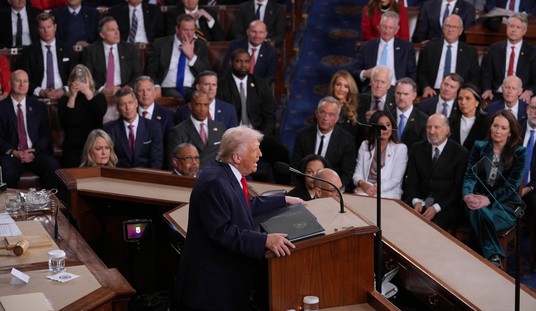Our government tells us Labor Day “is a creation of the labor movement and is dedicated to the social and economic achievements of American workers.” The Department of Labor’s website contends the holiday “constitutes a yearly national tribute to the contributions workers have made to the strength, prosperity, and well-being of our country.”
Perhaps on this Labor Day, we’ll do something a bit different. Instead of “addresses by leading union officials, industrialists, educators, clerics and government officials,” it’d be worth evaluating the contributions President Obama has made to the strength, prosperity and well-being of our country.
First, a few statistics.
At 7.4%, the traditional unemployment rate remains higher than it did in December 2008, the month before Obama took office. Similarly, at 11.5 million, the number of unemployed (16+) remains higher than in December 2008.
But as we all know, the official unemployment rate is only part of the story.
At 14.0%, the so-called U-6 unemployment rate, which includes those only marginally attached to the workforce, remains above its December 2008 levels.
Many have given up entirely. At 63.4%, the nation’s labor force participation rate remains abysmally low. That compares to 65.8% just before Obama took office, and while the difference may seem slight, the impact is substantial. The New York Times explained recently the “rate has fallen almost as sharply for people aged 25 to 54 as it has for the overall adult population.”
Add to that discouraging statistic that there are 1.25 million unemployed entry level workers, a 56% increase since December 2008. These workers, unable to find jobs early in their careers, are unlikely to recapture the lost earnings potential.
Recommended
And then there are the workers stuck in part time positions because of the economy, all 8.25 million of them.
The plight of would-be full-time workers stuck in part-time jobs has been - and will continue to be - in the news thanks to President Obama. A key component of Obamacare was the (now illegally delayed) employer mandate, which required employers with 50 or more full-time employees to offer health insurance that meets federal standards on coverage, affordability, etc.
Because full-time is defined as 30 hours a week, many businesses are opting to cut hours to avoid complying with the Obamacare mandate. The Nevada AFL-CIO unanimously adopted a resolution condemning the “unintended consequences” of Obamacare for “threatening the 40 hour work week.”
These aren’t idle threats, either.
From restaurant and movie chains to colleges and local governments, employers are beginning to trim hours. According to a study from UC Berkeley, some 2.3 million workers across the country are at risk of having their hours cut back thanks to Obamacare.
Even as the White House dismisses story after story as “anecdotal,” its allies are are insisting the impact is real. Joseph Hansen, president of the 1.2 million member United Food and Commercial Workers union, told NBC, “Wait a year. You'll see tremendous impact as workers have their hours reduced and their incomes reduced. The facts are already starting to show up. Their statistics, I think, are a little behind the time."
As with most big-government interventions, the impact will be felt most acutely on those without the means to overcome a new set of economic barriers. Obamacare is hurting low-skilled workers, explains the Heritage Foundation, because “it raises the minimum productivity required for them to hold a full-time job, particularly workers with families. … Employers will not hire them at a loss.”
The sad irony is that labor unions were a driving force behind the law’s eventual passage in 2010 and many claimed it would help lift low-skilled workers up. Now, as those low-skilled workers are being pinched by a painfully slow economic recovery and Obamacare, labor leaders are secretly begging the White House to fix the law.
Unfortunately, there is no quick fix for Obamacare. As implementation continues to ramp up, the law’s impact will ripple across the country, hurting those who are most vulnerable. The only way to stop the avalanche of “unintended consequences” is to stop Obamacare.
























Join the conversation as a VIP Member